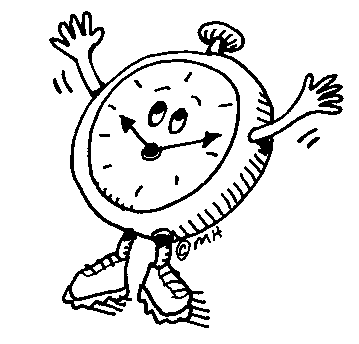Take Your Time!

My digital 24-hour clock displays the time of day as three numbers .
Let be the number of moments throughout a regular day (from midnight to midnight) when the digit sums of are all equal. Find .
Details & Assumptions :
- Ignore in favor of .
Image Credit: http://www.prestonlibrary.net/blog/wp-content/uploads/2009/04/clock.gif
The answer is 6.
This section requires Javascript.
You are seeing this because something didn't load right. We suggest you, (a) try
refreshing the page, (b) enabling javascript if it is disabled on your browser and,
finally, (c)
loading the
non-javascript version of this page
. We're sorry about the hassle.
Hour 0 , only 1 moment ( 1 2 ): 0 0 : 0 0 : 0 0 ,
Hour 1 , 4 moments ( 2 2 ): 0 1 : 0 1 : 0 1 , 0 1 : 0 1 : 1 0 , 0 1 : 1 0 : 0 1 , 0 1 : 1 0 : 1 0 ,
Hour 2 , 9 moments ( 3 2 ): 0 2 : 0 2 : 0 2 , 0 2 : 0 2 : 1 1 , 0 2 : 0 2 : 2 0 , etc … ,
Hour 3 , 1 6 moments ( 4 2 ): … ,
There is clearly a pattern: the squares! However , there can not be anything above 3 6 moments for any given hour because we are dealing with time! Example:
Hour 1 7 , 3 6 moments:
1 7 : ( 0 8 or 1 7 or 2 6 or 3 5 or 4 4 or 5 3 ) : ( 0 8 or 1 7 or 2 6 or 3 5 or 4 4 or 5 3 ) .
There is also the special case of 1 9 to consider— digsum ( 1 9 ) = 1 0 , and the only possible combinations for this are 1 9 , 2 8 , 3 7 , 4 6 , 5 4 , so there are only 2 5 moments instead of 3 6 .
Hence, we have
1 + 4 + 9 + 1 6 + 2 5 + 3 6 + 3 6 + 3 6 + 3 6 + 3 6 + 4 + 9 + 1 6 + 2 5 + 3 6 + 3 6 + 3 6 + 3 6 + 3 6 + 2 5 + 9 + 1 6 + 2 5 + 3 6 = A = 5 8 0 , and ⌈ 1 0 − 2 ⋅ 5 8 0 ⌉ = 6 .